Let me tell you what happened last week.
Last week, I traveled to Minneapolis. Spent a few days alone, wandering the city, settling into urban-grid consciousness.
Bought a $7 cortado. Put up in a hotel with Keurigs and white linen. Post-industrial chic. Ran a swampy seven-mile circuit around a section of the Mississippi amid thunderclap and Byzantine construction zones.
Almost stepped on a muskrat.
I was there to be in conversation at Open Book (aka paradise) with one of my favorite living authors, Robert Macfarlane. The pairing was to celebrate his new book and to have it be in dialogue with my own, an evening sponsored by Milkweed Editions, W.W. Norton, and the Trust for Public Land.
Macfarlane is—no exaggeration—one of the most talented and important writers working today. He’s also uncommonly generous, capacious, and humble. They say don’t meet your heroes, but that’s bullshit. Do it. Be moved by their generosity. See how deeply they’ve committed to their craft. Watch as they cast their spells.
In 2019, Rob spoke at Powell’s with the late Barry Lopez for his previous book, Underland. (My top three Macfarlane books, in no particular order: The Old Ways, Underland, Is a River Alive?) Before they started, Rob pulled from his pocket a 20-million-year-old fossilized ear bone of a whale from Miocene, and set it between them, ancestors listening in from deep time.
A tender gesture, I thought, so I decided to collect a tiny vial of river water from my Clark Fork watershed and place it between us to start the evening, to be witnessed by riverine memory-keeper-kin.
I swear it shifted something in the room’s energy.
The evening went far better than I could have ever imagined.
Standing room only. One of Milkweed’s largest public events. Laughter and tears and exceptional chemistry in the audience.
It was a blur of nerves for me, as I came over-prepared with every detail of his life and work, ready to talk about the rights of rivers and deconstructing imperial residue of mountain conquest and the need for exacting language during these times.
The following day, I was taken on a tour to learn about a Dakóta-led campaign, Owámniyomni Okhódayapi, to reclaim St. Anthony Falls on the upper Mississippi and restore them to the Dakóta as a place of healing, ceremony, and ecological vitality, right in the heart of downtown Minneapolis.
Barry Hand was our guide, a dynamic Dakóta storyteller and educator. The campaign moved me to no end, just as Barry’s sturdy commitment made me think about something that kept coming up in conversation with readers: how young people, especially boys, were having a hard time right now, how they’d felt led astray and were moving through the world without orientation, only inflamed macho-male influencer noise and unilateralist authoritarianism and continued conquest in Gaza and Ukraine—hyper-militarized masculine flex without containers of restraint, no avenues to sublimate such big energy into creating a livable future.
I didn’t know how to respond, so I listened.
It was clear that Rob’s book, and whatever I shared, activated something important about our moment’s distinct flagrance of unchecked, unintegrated power, of patriarchy, that there’s a deep cultural pang to turn such linearity of mind (bigger, faster, stronger, objectification, extraction without end) into something of grace, something generative and honorable, something that bends this psychoadolescent impulse back onto itself to form a healthy container and a renewable energy source for inclusivity and good, to be coauthored by a living, rivering world through unlearning and doing things differently.
In other words, to set down our imperial hardware and get to work helping to build the impossible.
This all came to a head in my final hour in Minneapolis, where I caught a scene while walking downtown that moved me to tears: three young guys squeezed onto a postage-stamp sized apartment balcony: two with scissors, one draped in a purple-polka-dot towel and having his hair cut.
The two cutters clearly had no idea what the hell they were doing, but they were trying anyhow, showing up for a friend, laughing and bobbing to a speaker firing something fresh and bass-y.
Tufts of hair see-sawed from the balcony and I thought, now here, here is the song we so desperately need right now—something so alive, so together, so joyous—a way into renewing currents of intimacy with the world and with one another.
A way home.




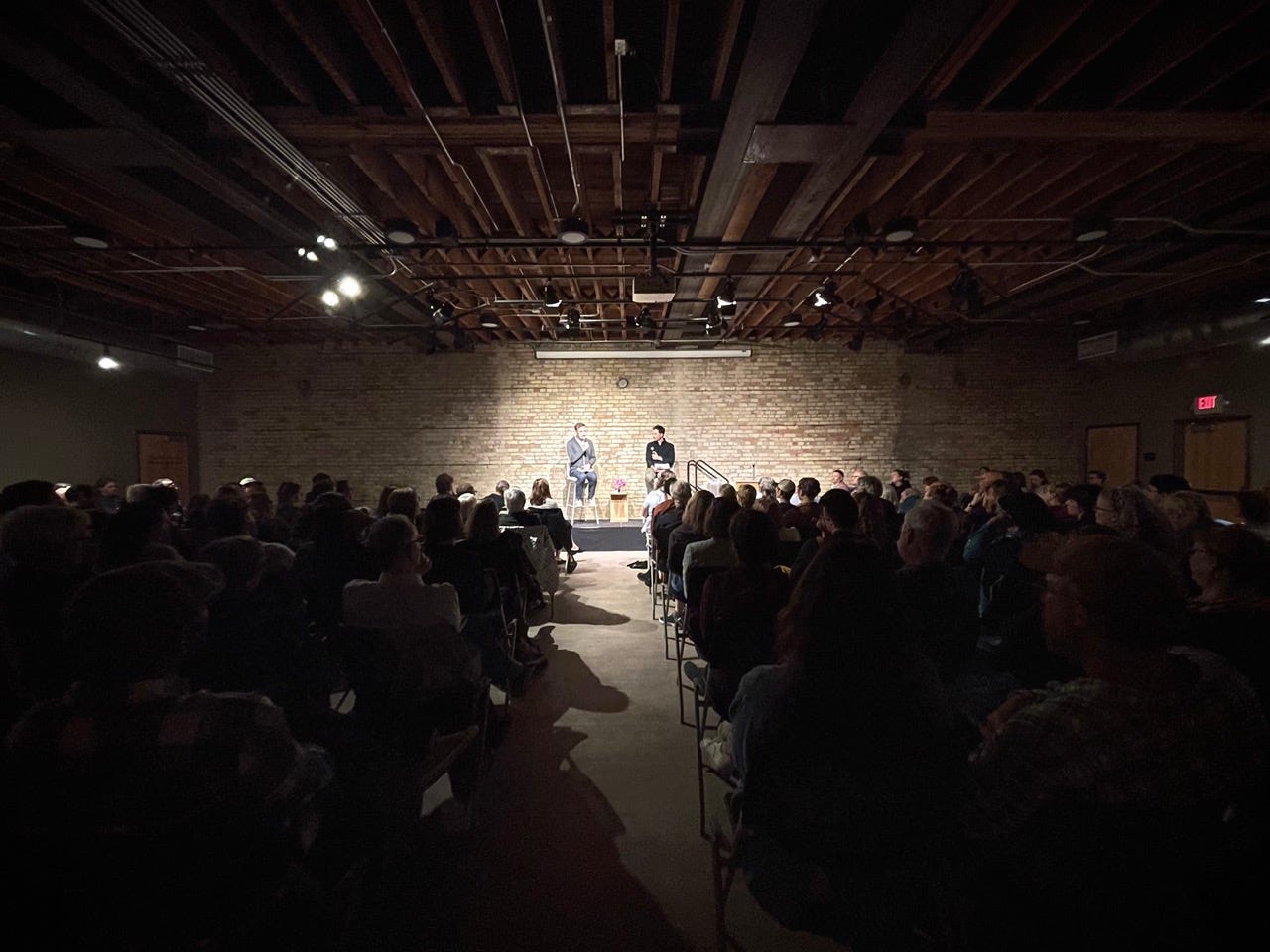
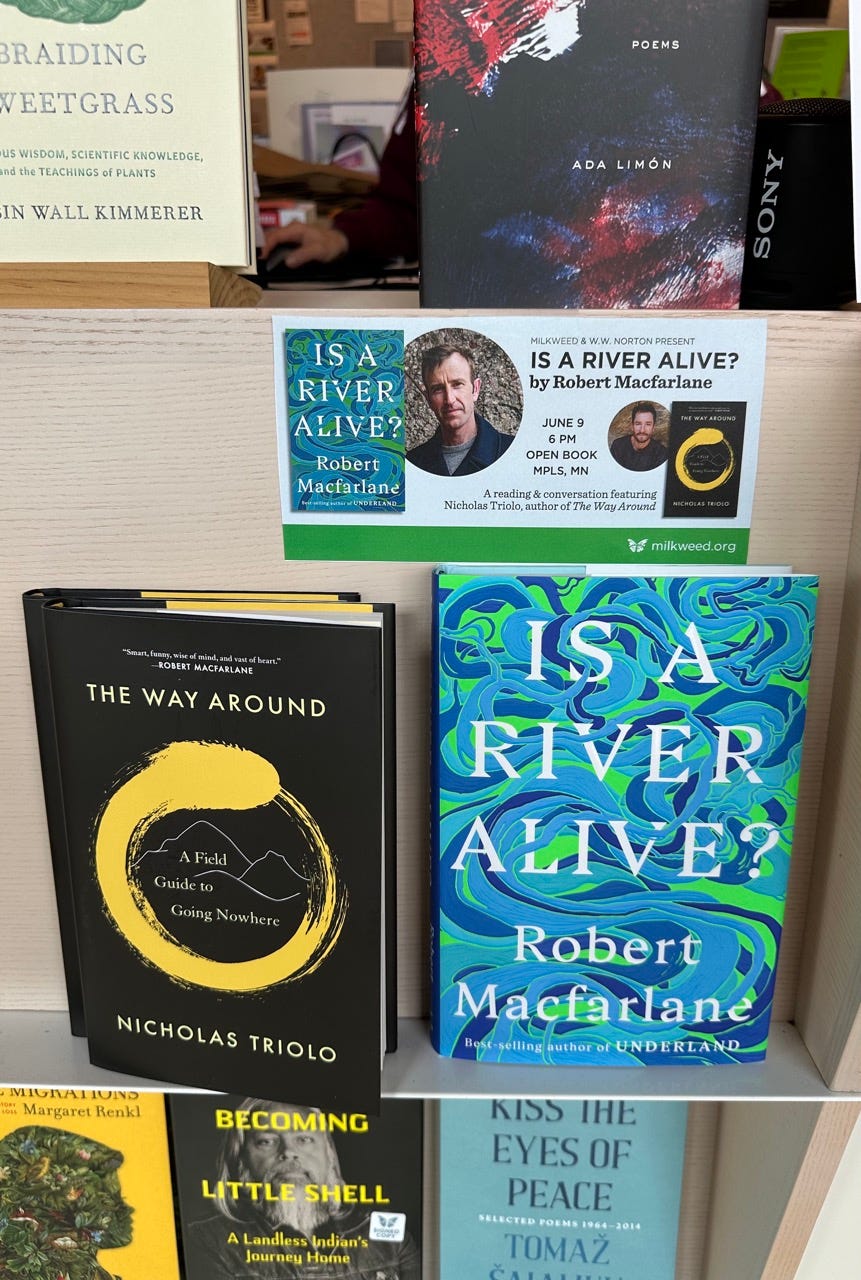
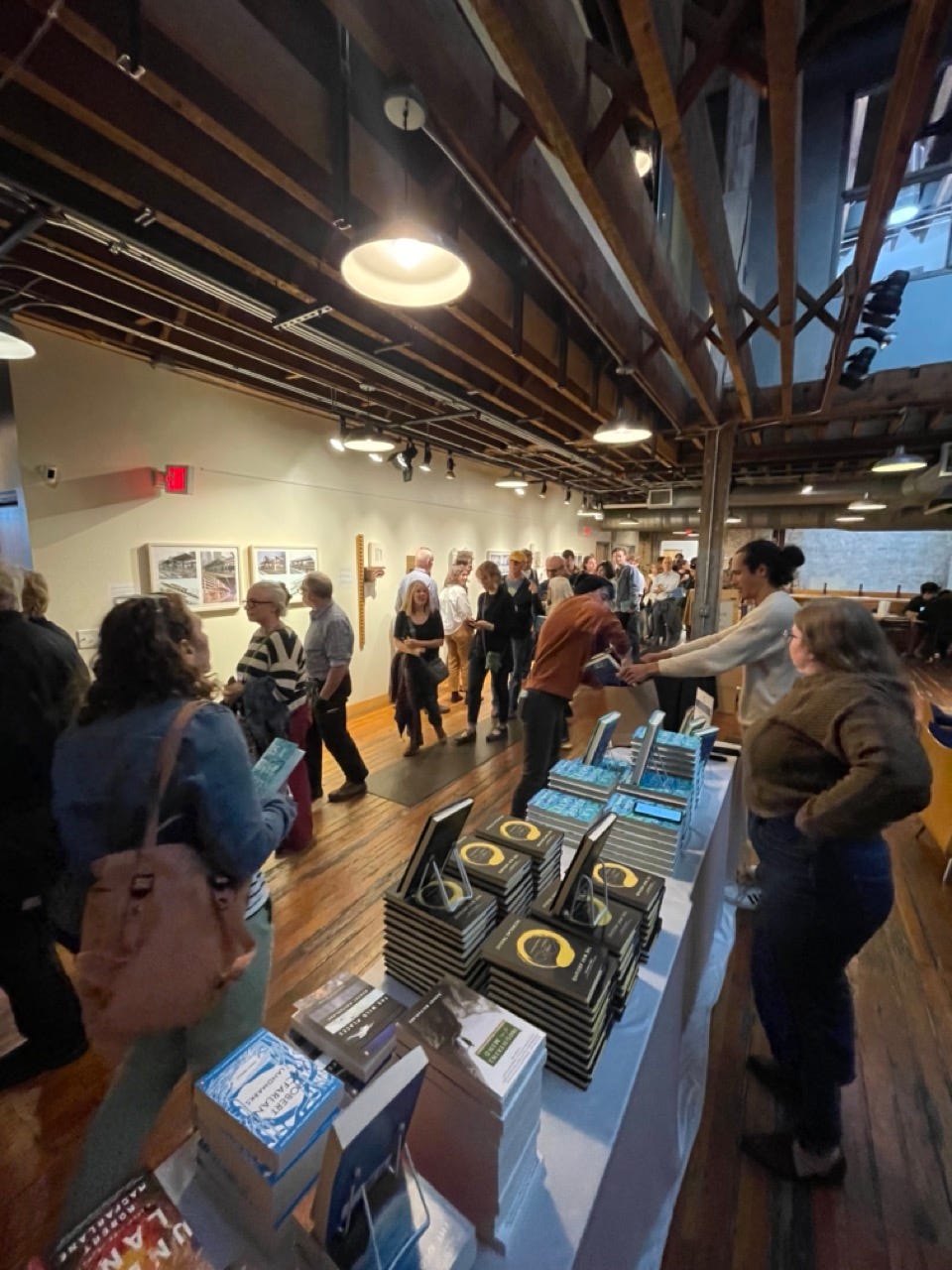
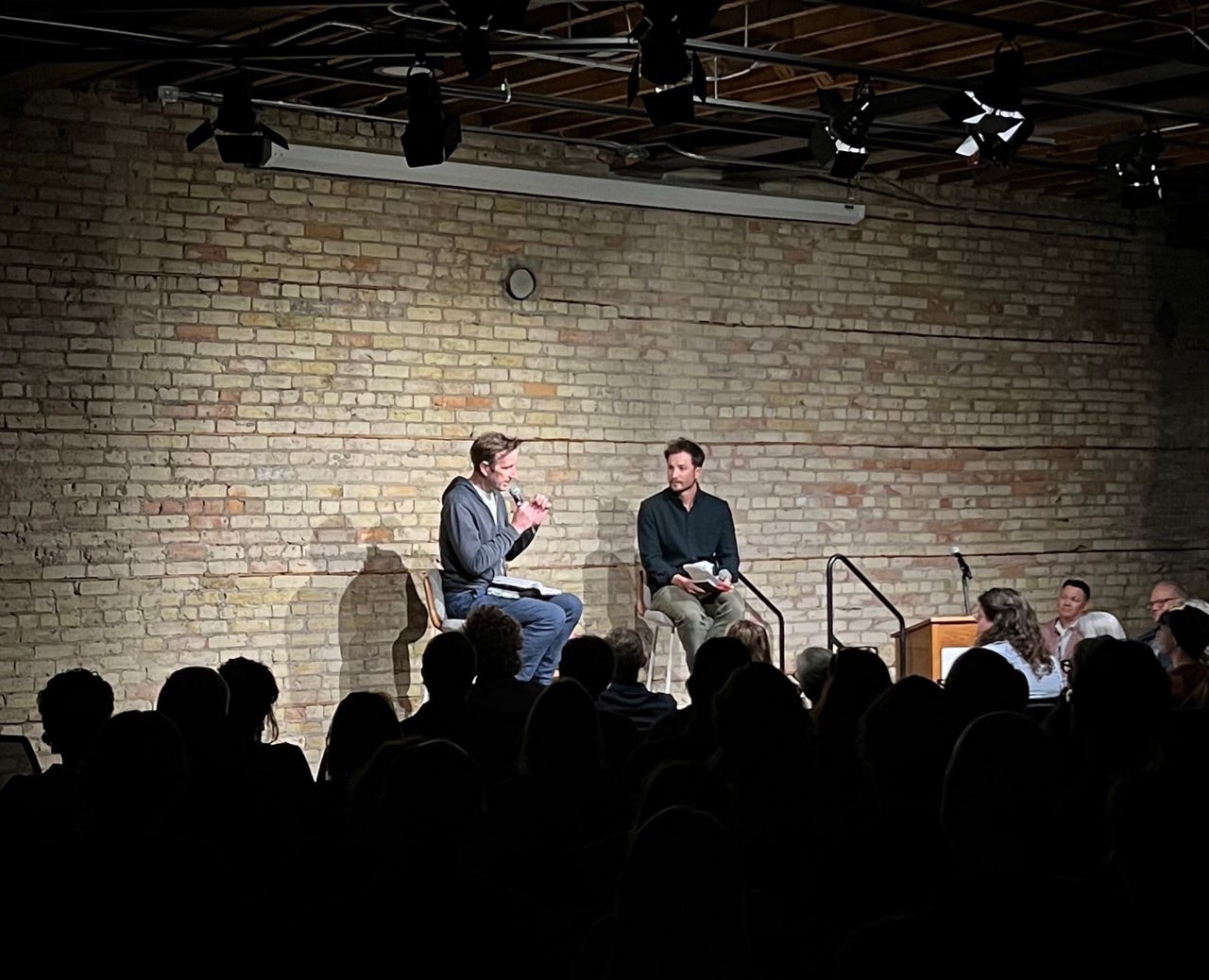
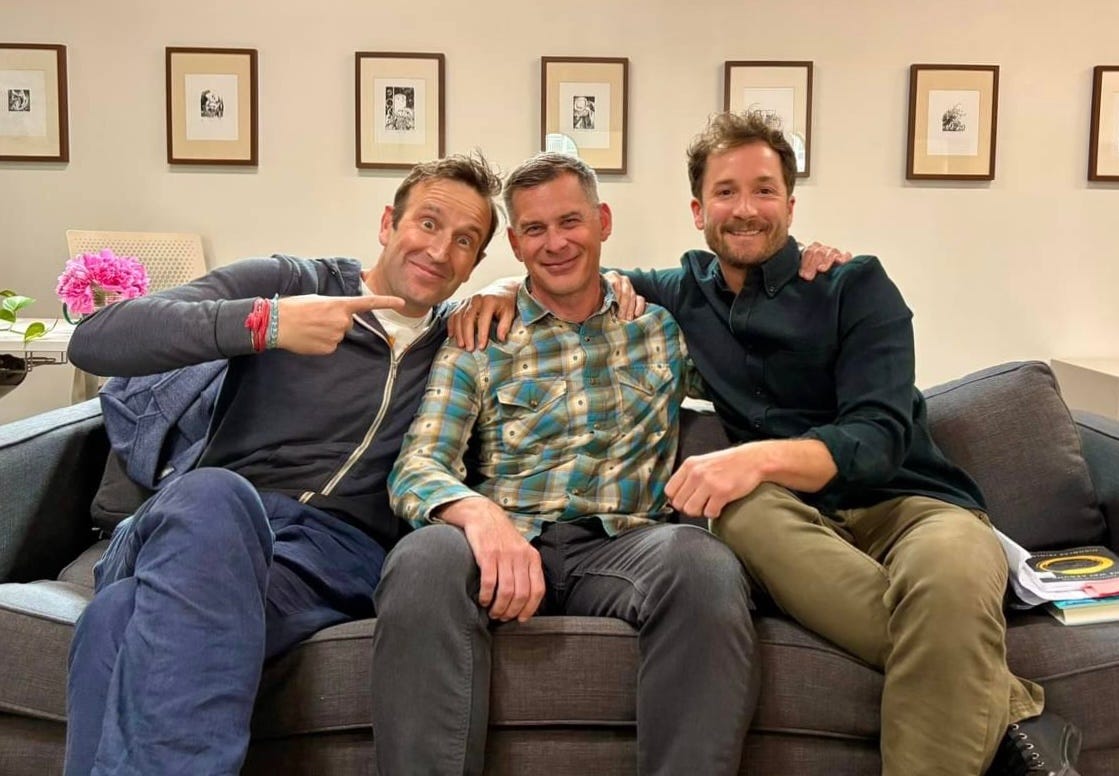
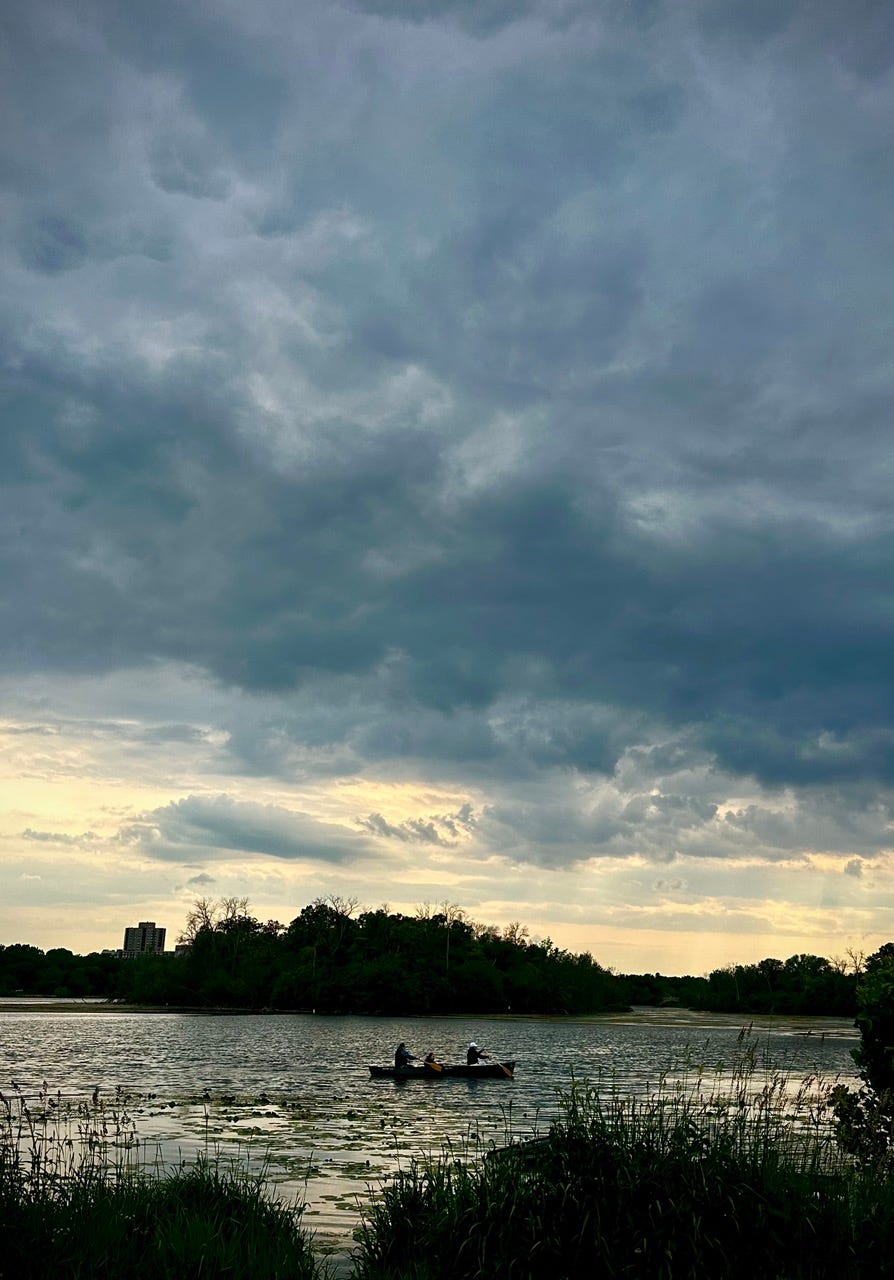
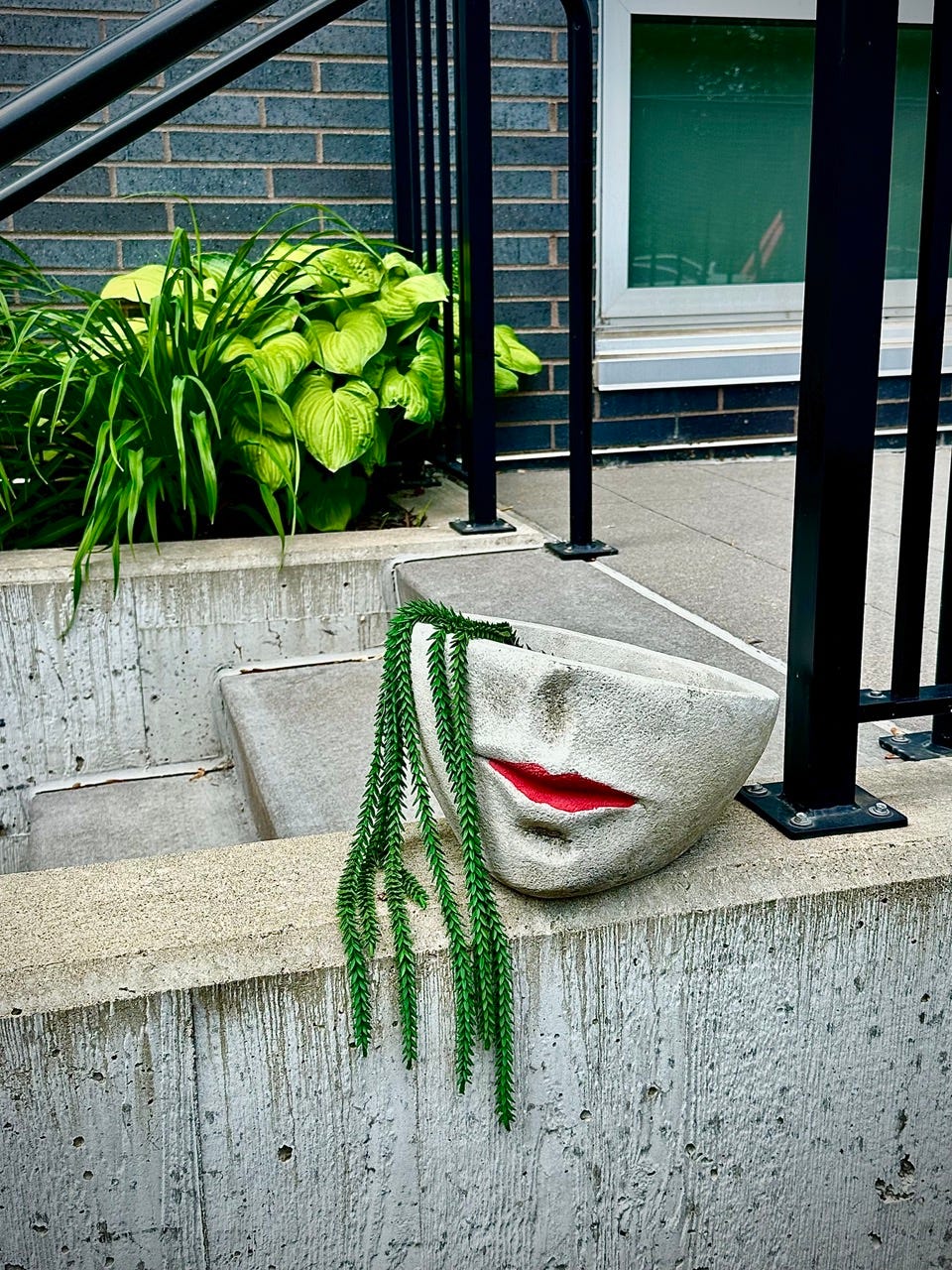
I would have loved to be there! LOVE the photo with you and Rob and Craig. Magic combo.
Beautiful, moving description of the balcony scene (and what young men are struggling with)